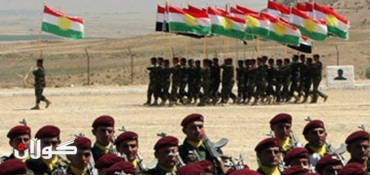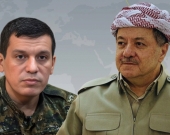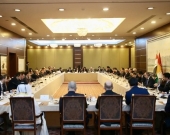Kurdistan Expected to Remain Secure Despite Erbil Attack, Experts Say

ERBIL, Kurdistan Region – The September 29 bomb attack on the security police in Erbil shattered the calm of the Kurdistan Region for the first time in six years. But security experts do not see this as the start of a major shift toward insecurity.
While in the rest of Iraq bomb explosions are a daily occurrence, Iraqi Kurdistan has been calm and quiet. Experts see a number of reasons why this Kurdish enclave in northern Iraq will hang on to its peace and quiet.
The two experts questioned for this article both mention the shared ethnic identity of the Kurds and their strong nationalist tendency as major reasons behind the good security situation in Iraqi Kurdistan.
Anyone from outside Kurdistan will stand out and be noticed, says a former military strategy advisor. He does not want to be mentioned by name, but works for Decisive Operations, a British firm that develops management and leadership capacities in Iraq.
He says for this reason Iraqi Kurdistan is difficult territory to penetrate for al-Qaida: Arabs stand out amongst the Kurdish population, and extremist Arab Muslims will have a hard time collecting information needed to prepare for an attack.
“Plus, the Kurdish leaders work together against a common enemy,” the DO spokesman noted.
Kurdish parties share one major enemy: Anyone who attacks the nation they have fought for long and hard.
Kurds stick together, and that is illustrated by the way the Iraqi Kurds accept the Syrian Kurdish war refugees – who have arrived in the tens of thousands -- as their brothers, says Jeremy Oliver, an American security expert who has been living in Kurdistan for five years, after working in Baghdad.
It shows for instance at the checkpoints, where all Arabs are checked routinely but Syrian Kurds can usually just pass.
Of great importance, too, is the fact that the Kurds are vigilant, Oliver says. “Women stand in the road for hours hosing down the pavement, and they keep an eye on everything. They phone a special line when they see anything out of the ordinary, for the security officer of the neighborhood to come and check it out.”
That mentality is hardly alive in the rest of Iraq. “There, security services are linked to religious groups that fight each other,” Oliver says. They do not share information. “They are too scared the information will be leaked, as they do not trust each other.”
Another important reason for the Kurds to want to hang on to their safety is the economic boom. While violence stopped the economic growth in the rest of Iraq, foreign investors are attracted to an eight percent growth in Iraqi Kurdistan.
In the past decade, Kurds jumped from poverty to prosperity. Now many have a luxury home and a second car. Kurdish individuals and politicians have big stakes in the economic growth. The main parties own big businesses. So both the Kurdish people and the politicians have major interests in keeping the region safe for business and investors.
At the same time, they need to “sell” Kurdistan as safe. The spokesman for DO calls this “a self-fulfilling prophecy.”
“Because the expectation is that Kurdistan remains safe, the Kurds will do their utmost to keep it safe. It is their honor and pride.” This reputation was damaged by the attack, he points out. “And perhaps that is part of what al-Qaida tried to accomplish.”
Checkpoints in strategic places play an important role in keeping Kurdistan safe. And at the same time they give civilians the feeling of safety, says Oliver. “The Koreans, as part of the coalition forces in 2003, have helped the Kurds to set them up. Everywhere you enter the region, you hit a circle of five posts.” Next to them mobile posts can be erected, as happened right after the attack in Erbil.
The security police conducting the checks was trained by the Americans. Most attention was given to building information systems, and the use of infiltration and tips.
“Most of the information comes from sources, agents and insiders,” according to the former military advisor.
The Americans and British have tried to embed this system in Baghdad, too. But since the departure of the Americans in 2011 the Iraqi authorities have embraced the old system of fear again. They use mass arrests and torture not only to repress, but also to get information.
Yet the information given under duress has not led to a decrease in the violence. Part of the problem is that even this information is not shared, says Oliver.
“The British have tried to connect the different services, but distrust and corruption have made it impossible. The Iraqi security services, the security police, the army – they simply do not work together.”
At the checkpoints in Baghdad the security police uses electronic devices that should show when explosives are hidden in a car. But the device is a proven fake, its producer convicted of fraud in Great Britain. That has not kept the Baghdadi police from using the hand-held “bomb detectors.”
At the Erbil checkpoints the queues are long. Here the security policeman talks to the driver, checks documents and goes through the luggage. The load of trucks gets checked, and even the odd bus with foreign tourists. This is the most visible difference between Baghdad and Kurdistan. Yet it is the difference between safety and violence; it is the difference between life and death.
RUDAW












